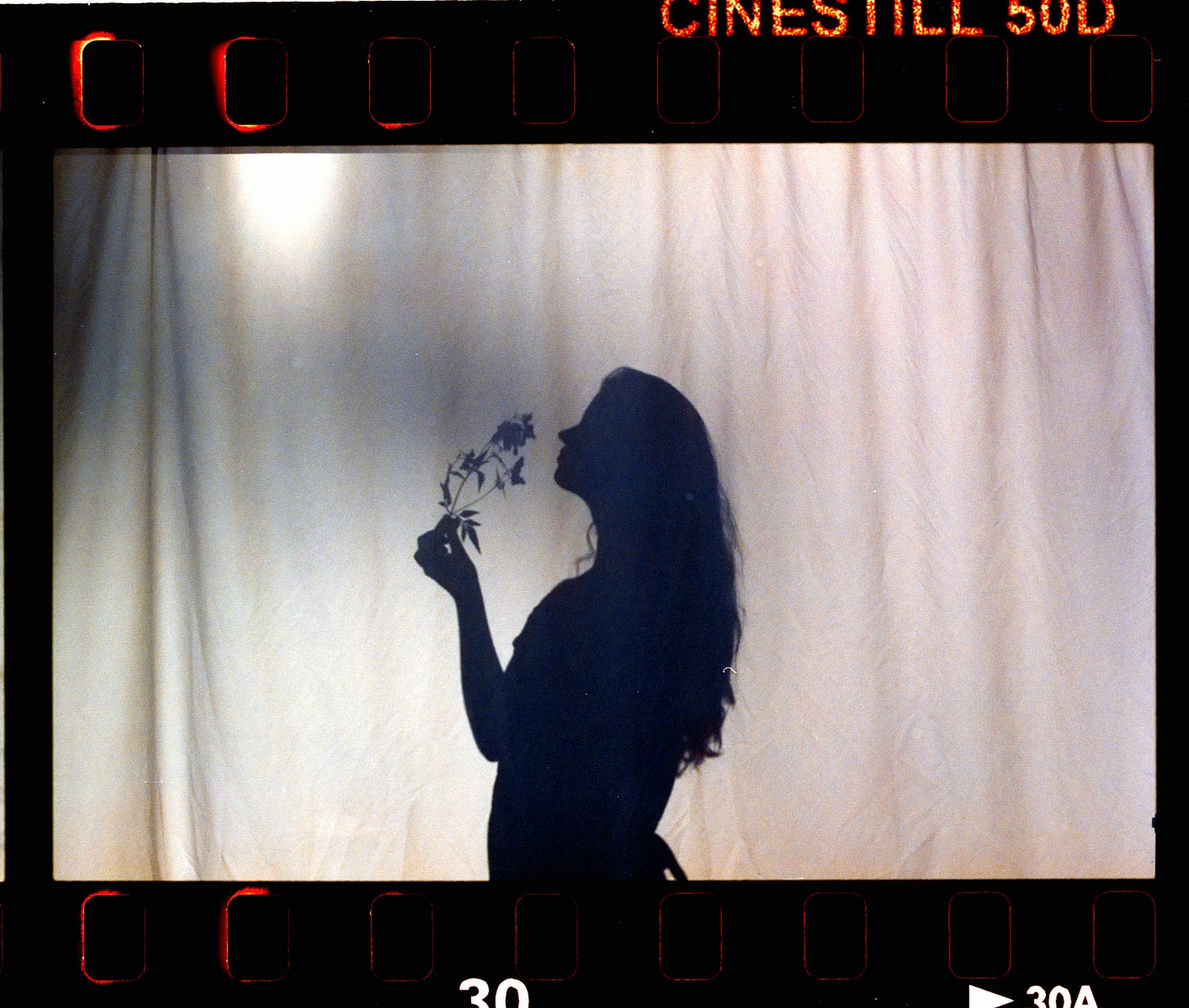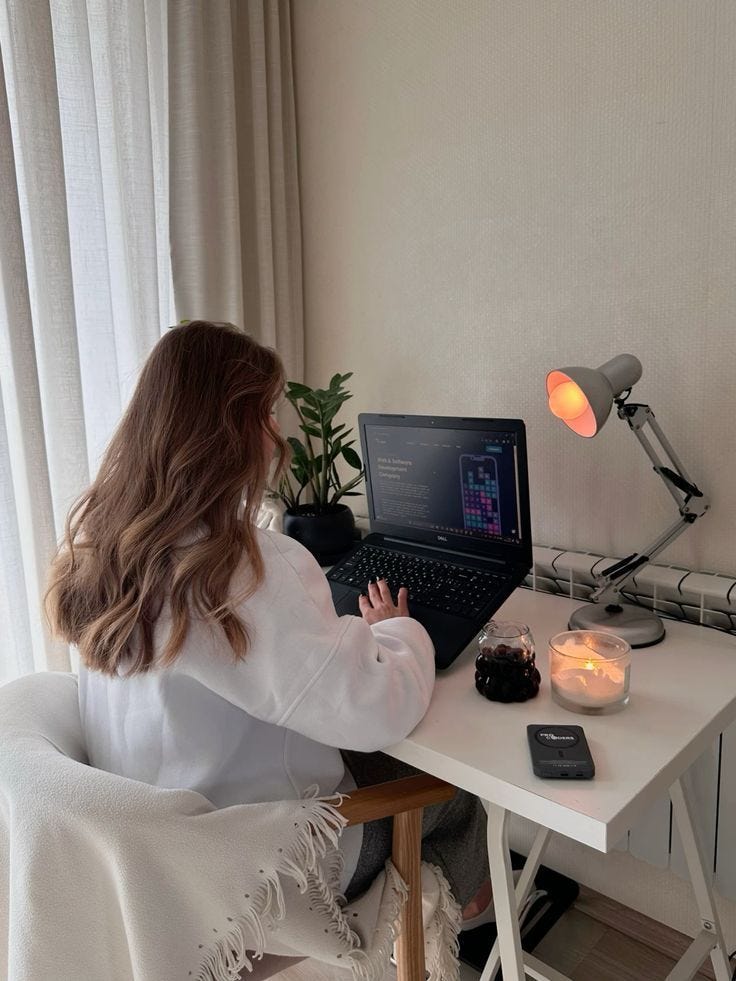There's a specific mental pain that creators face when we get stuck in this never-ending cycle of negative thought. We know what we want, and we have a general idea of how to get there. The people who have come before us have told us. It's pretty much laid out for us. But then our ego takes over, and we decide we're better than it. So you end up doing what you like, and then getting upset about not getting the results that you want.
You question, why am I not getting the results like others have? Why is it that everyone else makes it so easy to get there? So you end up taking some action, but not completely doing the thing you're supposed to do—the thing that will actually move the needle.
You waste time on justifying your thoughts, that you don't want to be like everyone else, that you're better than the people you see on social media. But deep down, you know that this thinking hinders you—you're holding on to the belief that you can do better than others, and therefore you need to stick to the decisions you've made before.
But the problem with this thinking is that it's egotistical, and if you're being honest with yourself, by doing this, you're not actually showing up for others to make an impact that you say you want to have.
Sometimes, I get upset about the fact that my writing isn't getting enough traction. I'm not the best writer, but I do know that my writing helps at least one person, and I just wish that more people could see it. But at the same time, I think, "I'm too good for social media," or "It's fine. People will find me." This thinking becomes egoistic in the sense that people are looking for my writing. But in reality, no one's doing that.
No one's looking for things. We simply have to do the extra work of putting ourselves out there, whether that's showing up on social media or talking about our work with our friends and family. Because in reality, no one knows what you're doing unless you put it out there.
The way I'm finally learning how to get out of my own way when it comes to this is by learning that most people are beginners. As much as I love talking about the depth of lifestyle design or mindset, not many people will resonate with it, or not many people know about it. So, if I really want to succeed in this world, my job is to present it in a way that most people can understand.
So I guess that's the first step in getting out of your own way. To understand the game you're playing. For a long time, I didn't really think I was playing the game of social media. I thought I could just get away with posting whatever and however I want, but now I know, it's not how it works. If I truly want to play the game, I have to really learn to play it well.
One of the creators I admire, Dan Koe, says there are three levels of creators: level one, the trend jackers, or creators that create the surface-level content. Level two, are the brilliant noodles, or creators who hate the algorithm, but they actually have something useful to say. And level three are the value creators, or as he puts it, "these are the creators who see social media as a tool to pursue their life's work. All of their content has a through-line. A frame. A mission. They have something meaningful to share, but they also understand that if they don't capture attention, that meaning won't be transmitted."
When I heard this, I felt like I was called out. I am definitely acting as a level two creator, who feels like I have something 'meaningful' to share, yet feel like I'm better than the algorithm or social media, so I don't put enough effort into recycling my message in ways that most people could consume. So after hearing this, something finally clicked for me. If I want to pursue meaningful work, I have to play the game as a level 3 creator—one that sees the value of the algorithm, while also producing meaningful work.
This is obviously easier said than done. But as I dug deeper into my own observations, I also learned that being in the overthinking mode can be addictive. I notice that whenever I have the option to take action, my default is to overthink. I think that there are more things to learn. That I don't know enough. I worry about the things that haven't even happened yet. All of this leads to disempowering feelings and, worse, inaction.
I noticed this behaviour when I decided to track how long I spend doing certain things, like writing, editing, filming a video, etc. During this experiment, I learned that most things I want to do don't take that much time. Writing a newsletter takes me about 30 minutes. Editing takes me about an hour, or two if it's a really difficult essay. Filming a talking head video for Instagram takes me about 5 minutes, and editing it takes about 10 minutes.
Yet, the amount of time I spend overthinking instead of just doing the things I want to do takes much more time and way more energy than actually doing the things. And that's when I realize that overthinking or worrying has become an emotional crutch, like a cigarette or opening a social media app. It's something I go back to when I don't want to do the thing I need to do.
After that realization—that I'm addicted to worrying or overthinking—I've learned to notice it, and of course, change it. The simple antidote I've been using is to simply time-block tasks I'm tempted to think about.
There's a concept called the sunk cost fallacy that's usually discussed in relation to money and business. But lately, I realized that I've also been falling into the trap of sunk cost fallacy in terms of things I've done in the past.
For instance, I've been stuck in a mental loop where I've created many videos in the past that I never published. And I feel like I can't move on and create new ones until I finish those videos, even though they no longer reflect the personal brand I'm creating.
I realized that this is the sunk cost fallacy in action. Part of me is tempted to go back and edit those past videos I've already invested time and effort in, but in reality, they no longer reflect the brand I'm building. Therefore, it makes no sense to invest any more time, energy, or effort in them simply because I've done so in the past.
To counteract this feeling, I'm learning to focus on the things I can create now, while also contributing to the brand I'm building. If the past videos can be used to reflect the brand I'm building now, then I have permission to use them and edit them. Because in reality, you only have so much time and energy to use.
One thing that has been truly helping me to finally take action is the art of detachment. It's an art because I can't tell you exactly how to do it. It's a practice that takes time. It starts with small things, like taking action and then forgetting about what you've done, and moving on with your life. It's definitely not refreshing your metrics page over and over again. It's definitely not questioning why your content has flopped. Or why everyone else is more successful than you.
There are many more psychological concepts we can discuss when it comes to getting out of your own way, but at the core of it, they all lead to inaction. And in a life where you're building a life that you love, action is the only thing that matters. Whether it's the right or wrong action, it’ll lead you to the next step. Ironically, there's never a wrong action, because even the wrong action will tell you to pivot towards the right action. And once you can actually internalize this, you can finally get out of your own way.
If you liked this article, consider sharing it.
Wanna support my work but not feeling the subscription? I’d appreciate a coffee.






